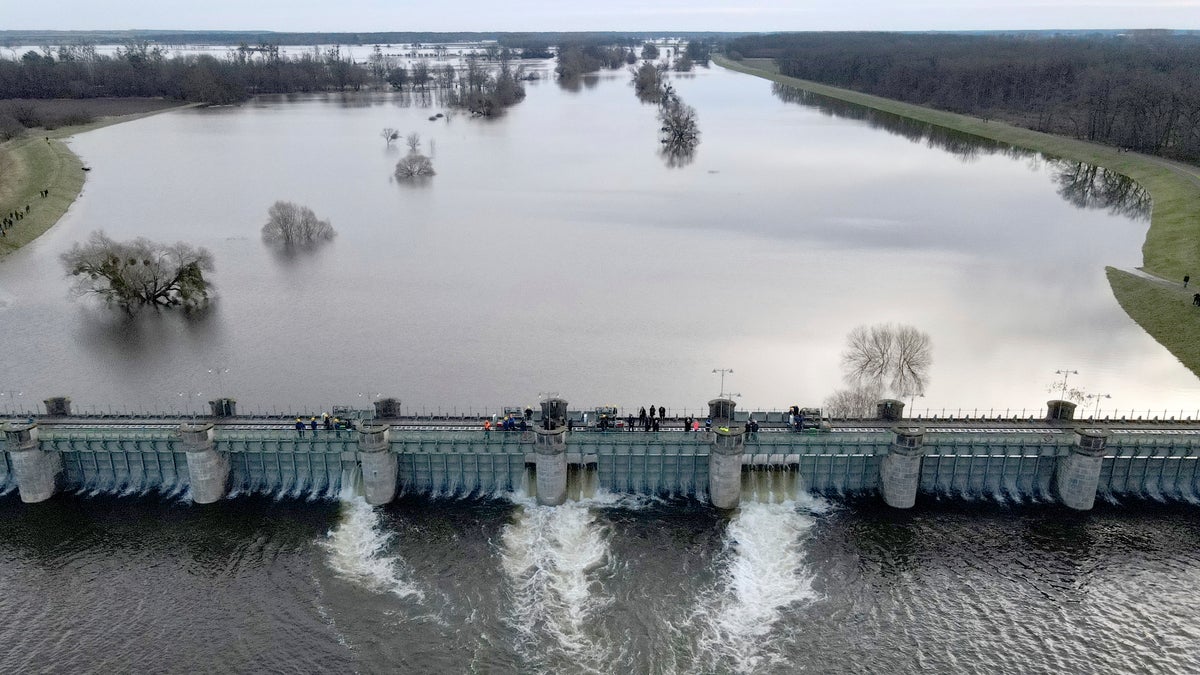
Parts of northern and central Europe continued to grapple with flooding on Thursday after heavy rain, and a barrier near the German city of Magdeburg was opened for the first time in a decade to ease pressure from the Elbe River.
This week's floods have prompted evacuations of dozens or hundreds of people in parts of northern and central Germany, but largely dry weather was forecast on Thursday. Still, water levels on some rivers caused concern, and they have continued to rise in parts of Lower Saxony state in the northwest.
The Elbe was nearly 4 meters (13 feet) above its normal level in Dresden, German news agency dpa reported. Downstream, the Pretziener Wehr, a flood barrier built in the 1870s on a branch of the river and renovated in 2010, was opened for the first time since large-scale floods in 2013.
The aim was to divert about a third of the river's water into a 21-kilometer (13-mile) channel that bypasses the town of Schoenebeck and Saxony-Anhalt's state capital, Magdeburg.
To the south in Germany's Thuringia region, several hundred inhabitants of the village of Windehausen who evacuated earlier this week were cleared to return home after power was restored.
In the neighboring Netherlands, the Rhine peaked far above normal levels early Thursday at Lobith village on the German border but was expected to drop significantly over the next week, authorities said. Other branches of the Rhine around the low-lying country were expected to peak Thursday as the high waters move toward the sea.
Emergency workers in the Dutch town of Deventer, forecast to be the hardest hit, heaped sandbags along the Ijssel River and closed roads to prepare for flooding. Several flood plains were underwater in the eastern Netherlands as rivers surged in recent days.
In Hungary, the Danube spilled over its banks in Budapest and was expected to peak in the capital on Thursday. Heavy rain has compounded the effects of melting snow. Any damage to the capital was not immediately clear.
While some smaller rivers in western Hungary have started to recede, water levels on the Danube are predicted to fall slowly, with the peak downstream in southern Hungary coming only on New Year's Eve on Sunday.







